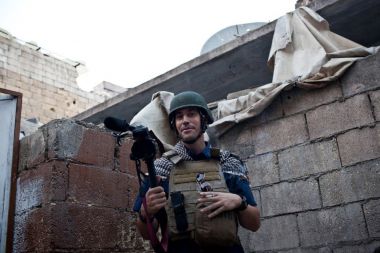Al Qaeda leader in Yemen 'strongly' rejects Islamic State beheadings; suggests they are not kind

An al Qaeda leader in Yemen has suggested in a new online video that the beheading and filming of prisoners is un-Islamic because it does not meet Muslim standards of kindness.
Nasser bin Ali al-Ansi, of Al Qaeda in the Arabian Peninsula (AQAP) described the act as ugly and said his own group had banned the practice.
IS, an offshoot of the al Qaeda network, has carved out territory in Syria and Iraq with military victories over government troops and former Islamist allies and violence against civilians. Its fighters sometimes film their beheadings of prisoners and post the footage online.
"There is no doubt that some of our brothers have been influenced by scenes of beheadings which have proliferated lately," bin Ali al-Ansi said in video posted on Twitter, without referring to Islamic State by name.
"These are scenes which we do not accept and we strongly reject," he added.
"Prophet Mohammad, peace be upon him and upon his family, has ordered us to be kind in everything, even in killing, and it is not part of kindness to film beheadings and slayings and publish them in public, where sons and daughters of those killed can see," he added in Arabic.
"These are some of the ugliest matters."
AQAP, seen by the United States as one of the most active branches of the network established by Osama bin Laden, has been attacking Yemeni security forces, government facilities and Western targets in the Arabian Peninsula country.
The United States has in turn killed AQAP leaders and members with drone strikes, in attacks that have sometimes killed civilians.
Ansi said such US strikes were "increasing Muslims' sympathy for us".
"With the martyrs, hearts grow more filled with hate and rancor against America. The drone strikes have turned our call from a narrow one into a popular one," he said.
The veteran AQAP leader, who is said to have worked with bin Laden in Afghanistan, said his group had banned beheadings after recent incidents in which members of the group were shown using knives to behead government soldiers in eastern Yemen and at least one Shi'ite Muslim Houthi fighter in the centre of the country.
Asked about the beheadings and the shooting of medics at a Yemeni Defence Ministry hospital in December last year, film of which appeared online, Ansi said: "Beheadings are limited and individual acts and we will prevent them being repeated.
"But the wrong that happened during the blessed operation on the Defence Ministry in Sanaa, the mujahideen have apologised for it and have shown that they did not order that and that this is not their ordinary method in fighting," he added, blaming an individual for what happened.











